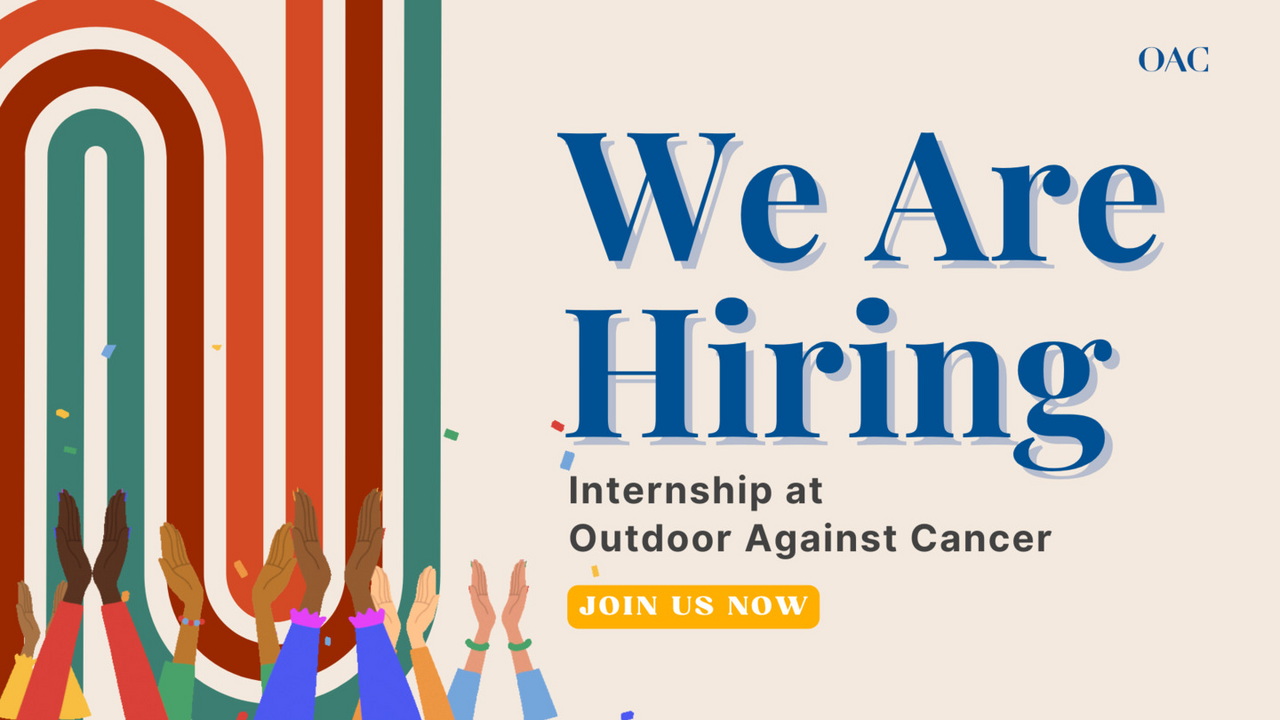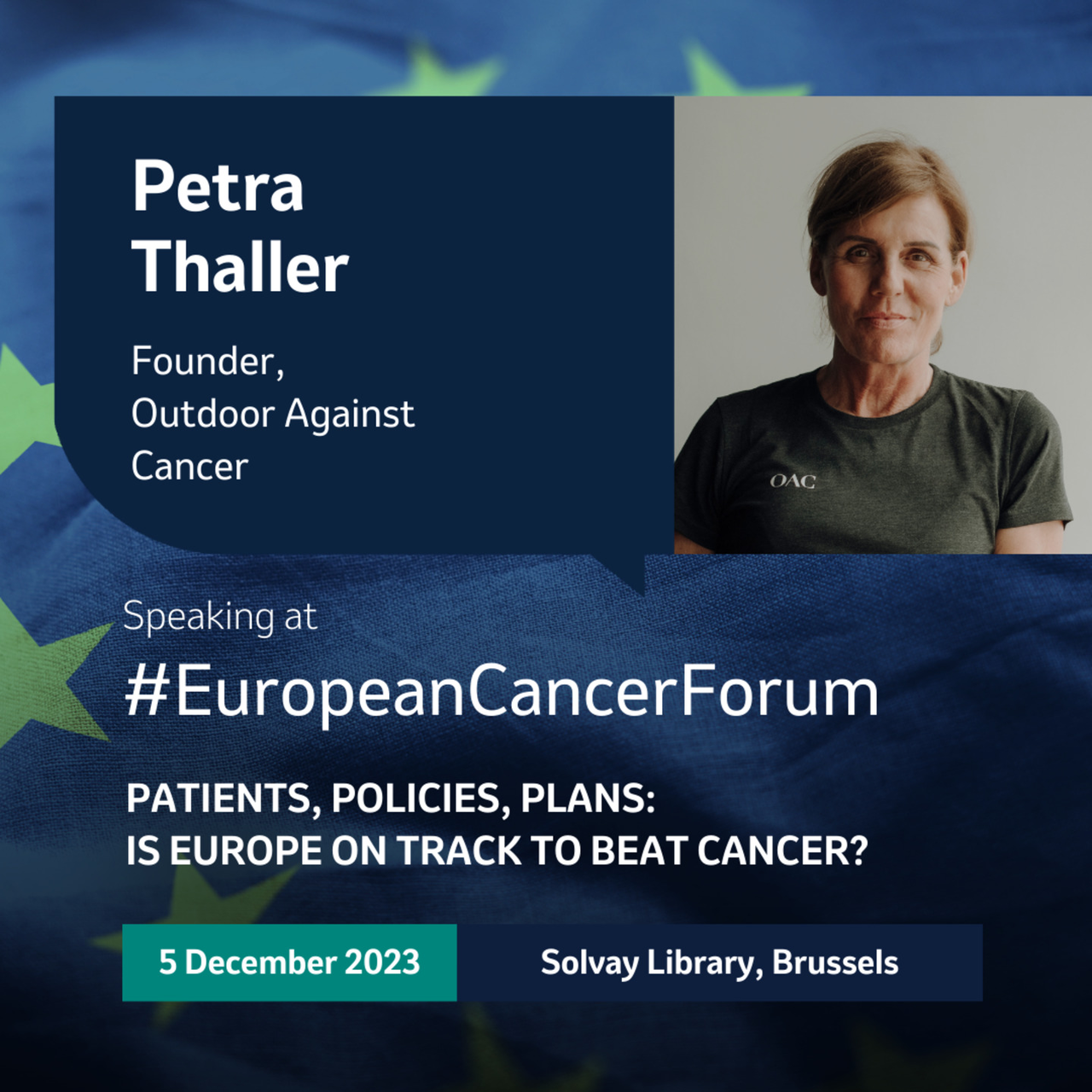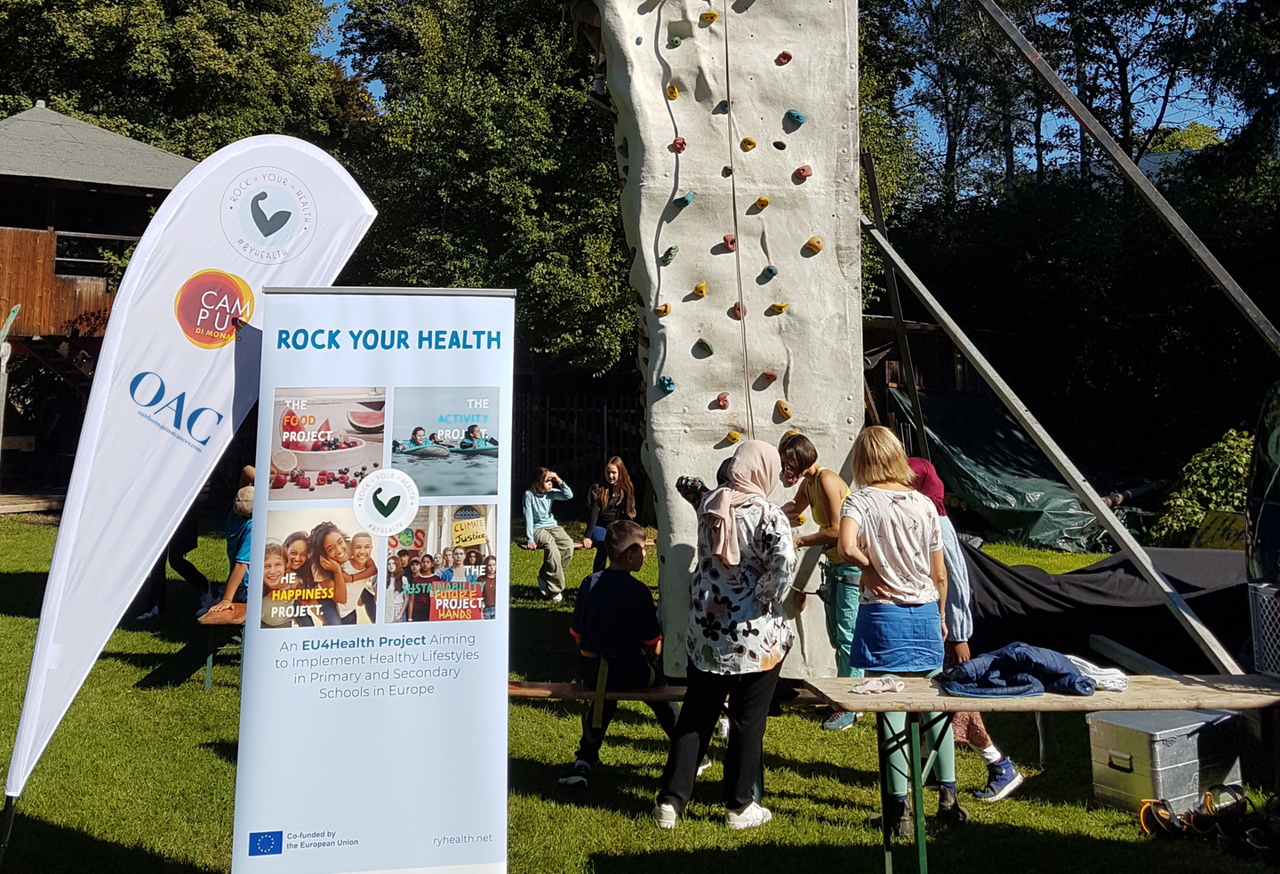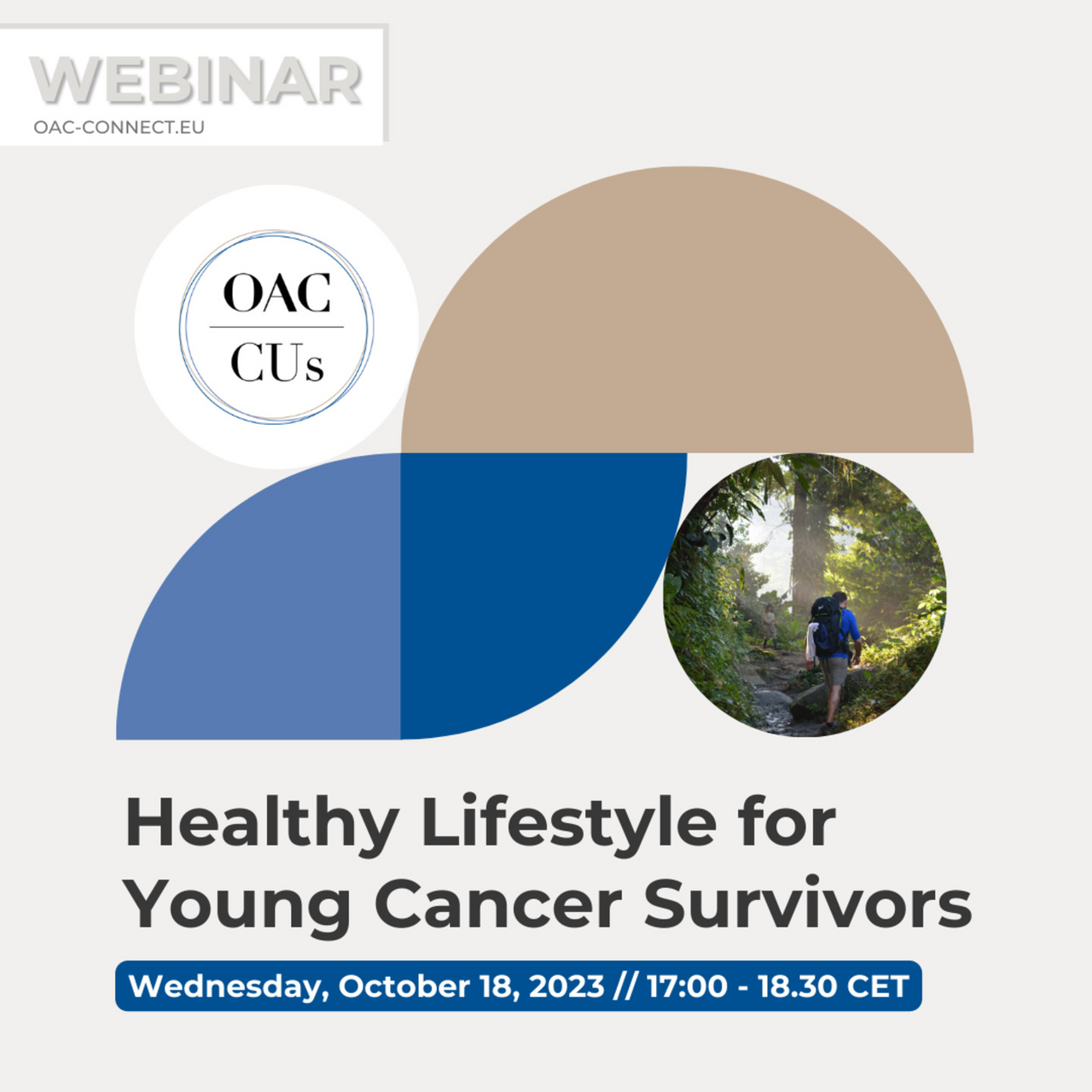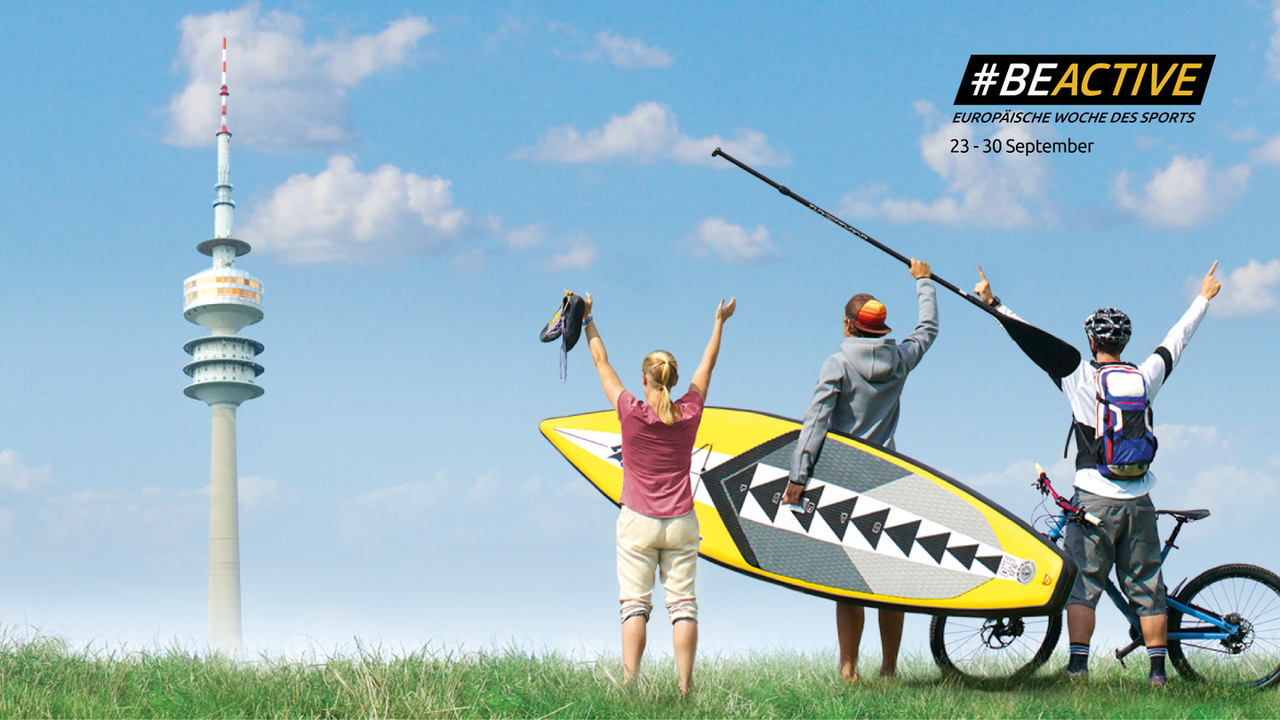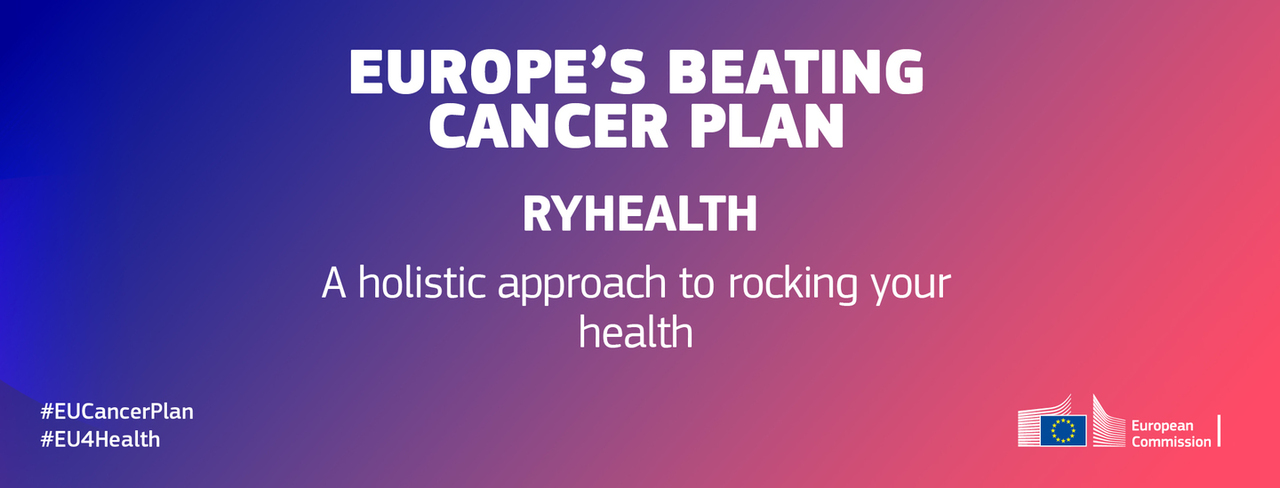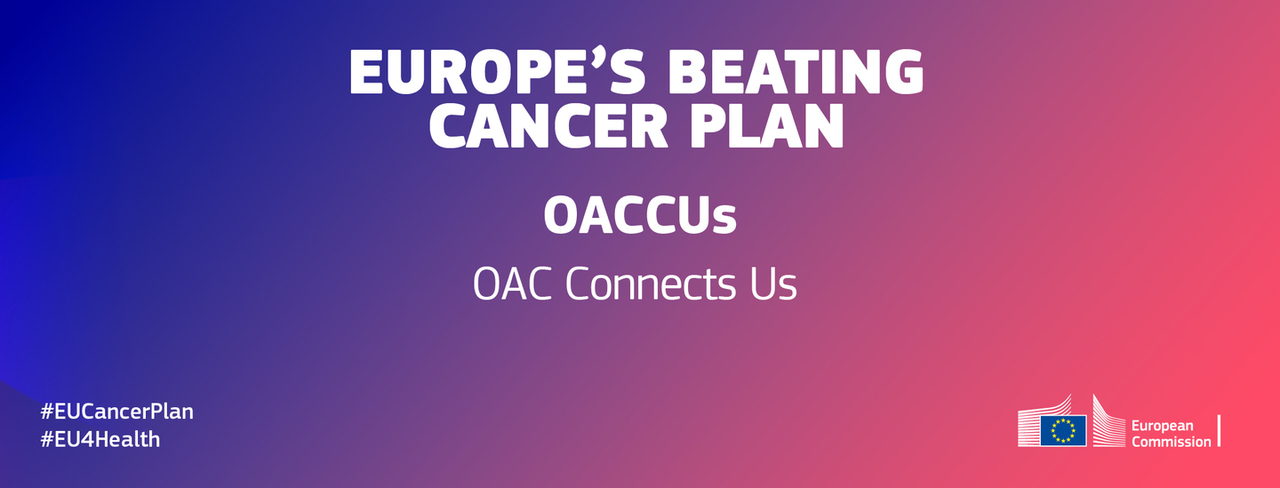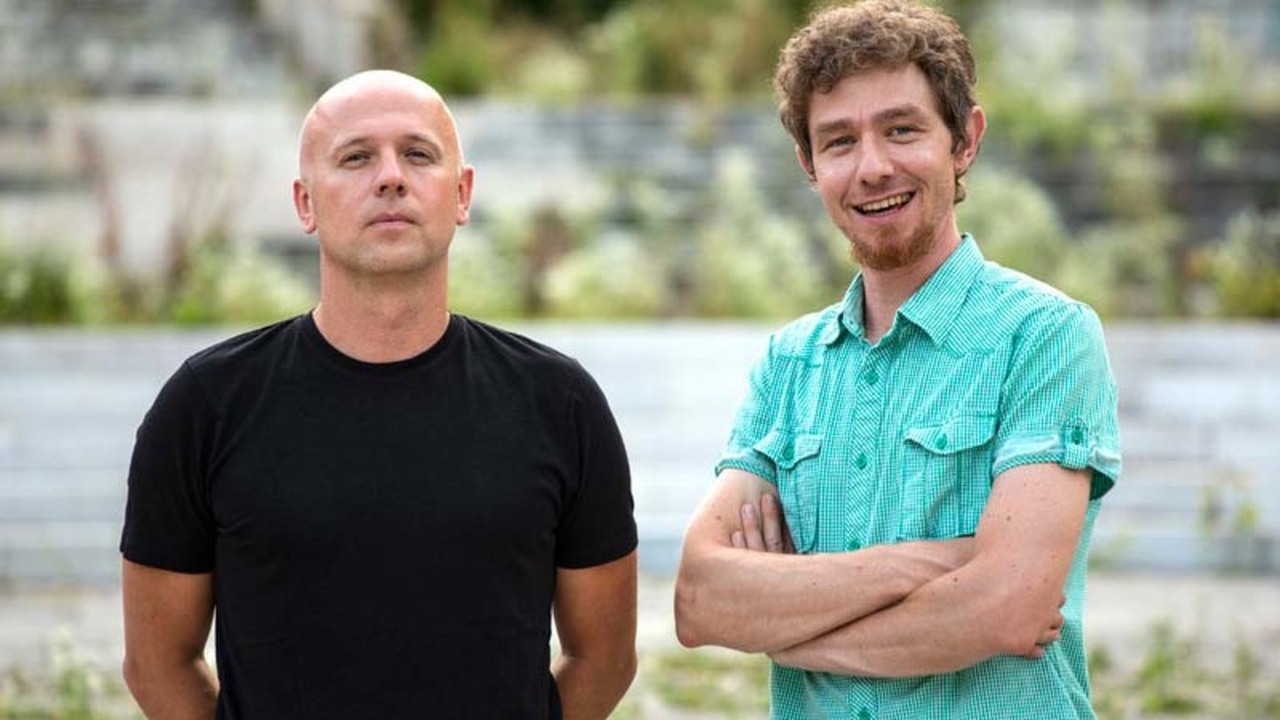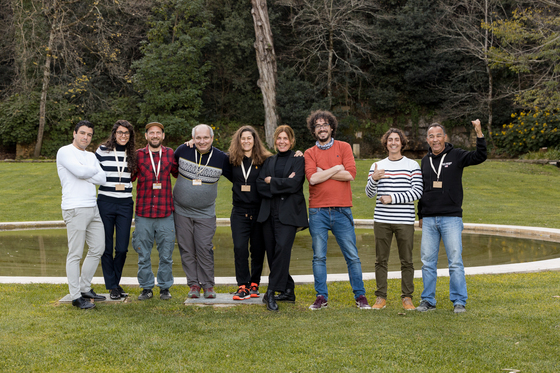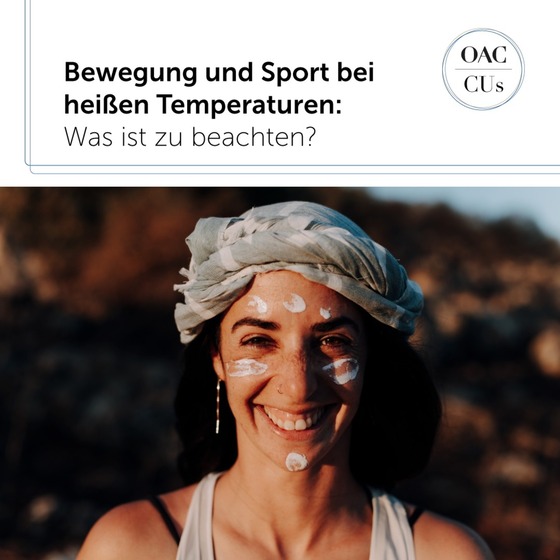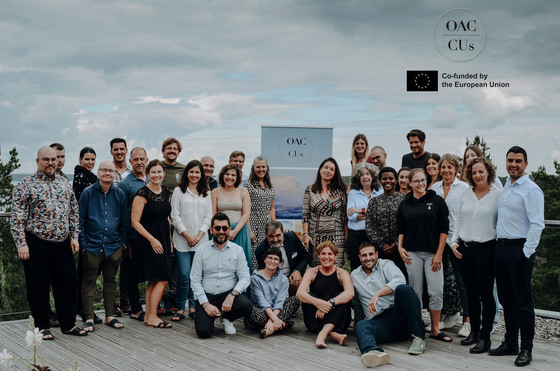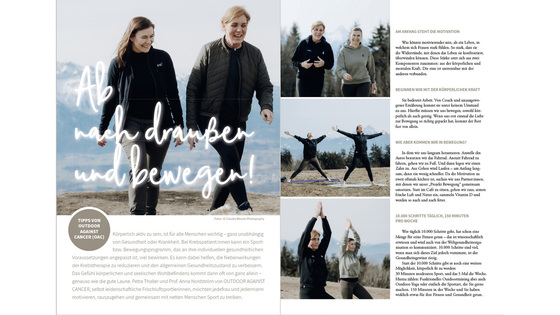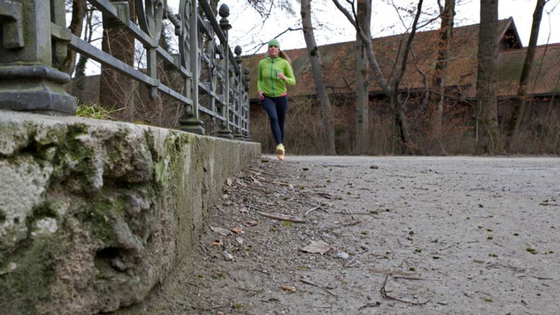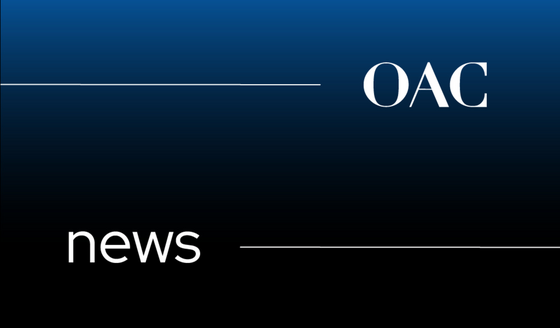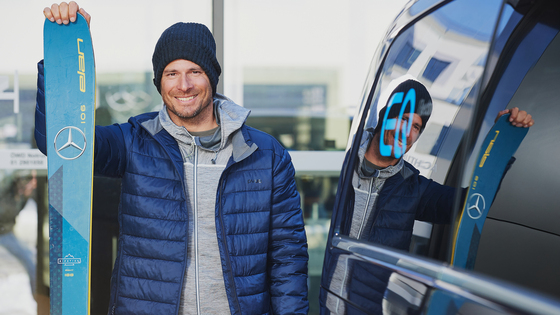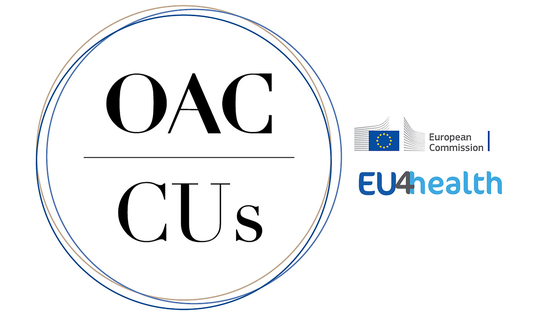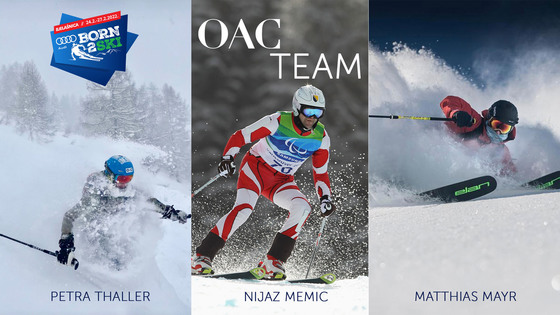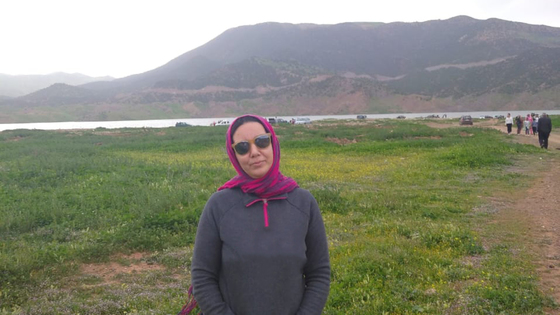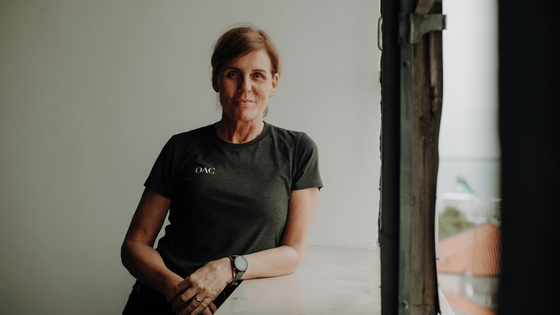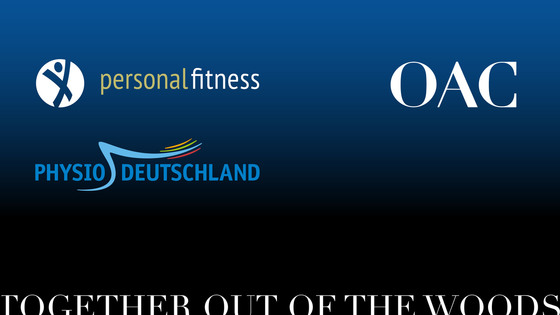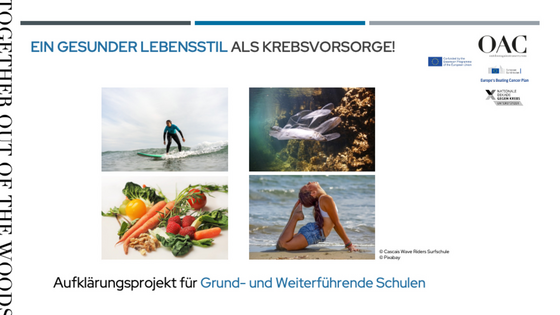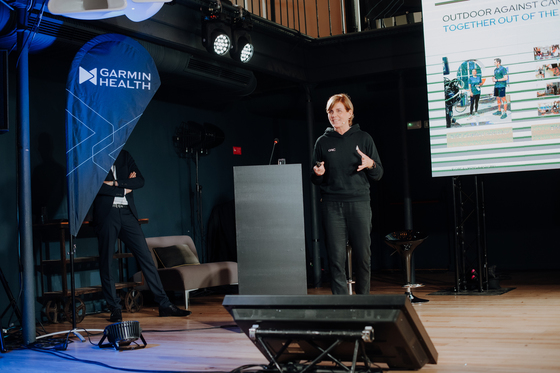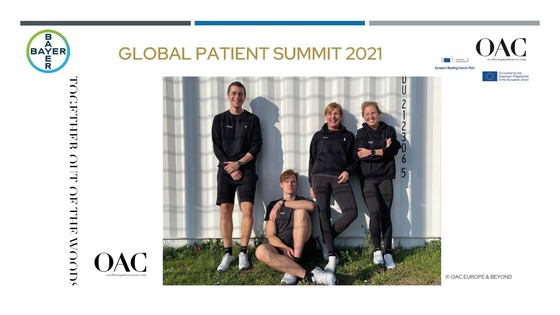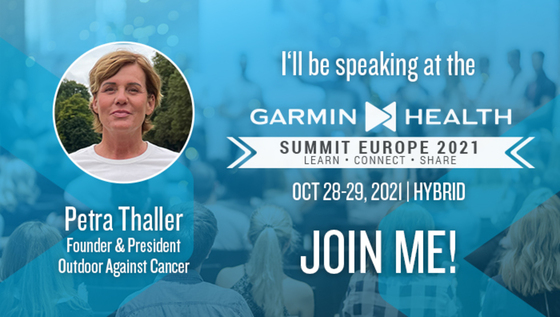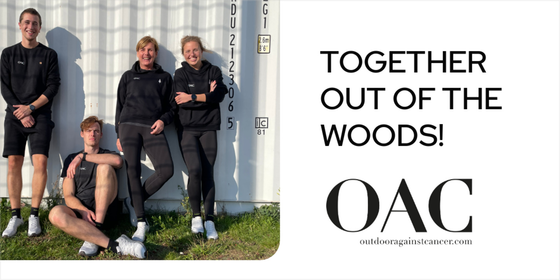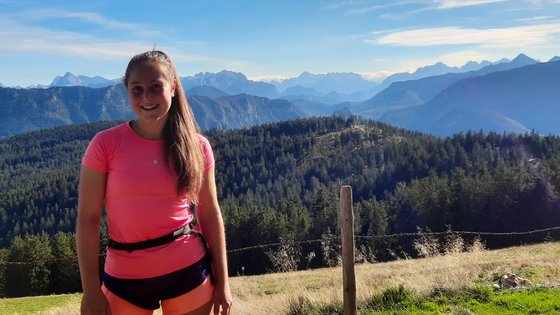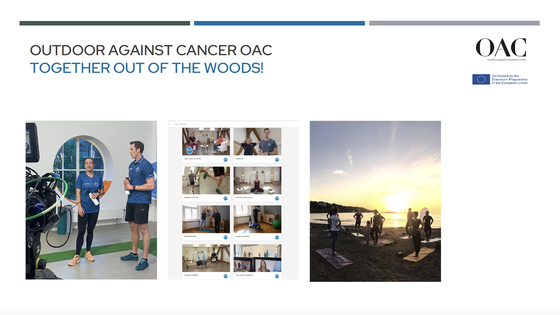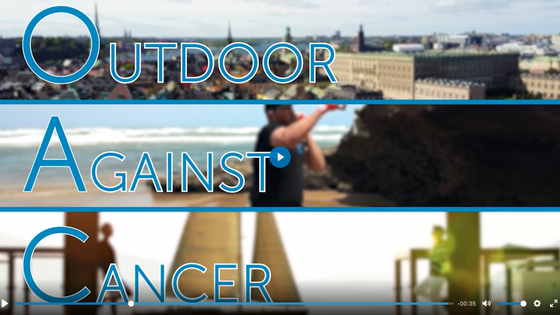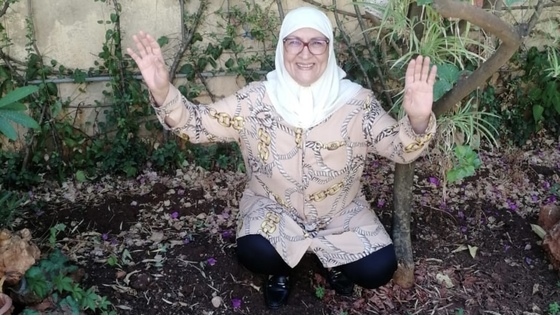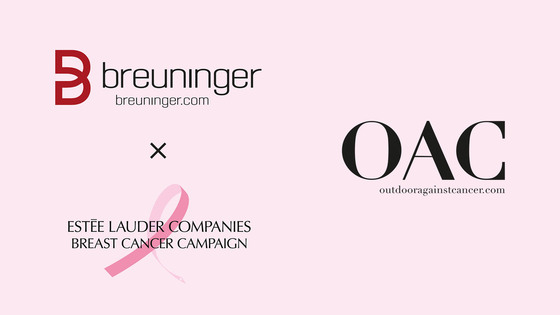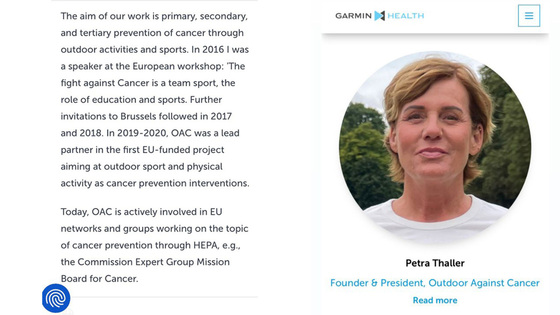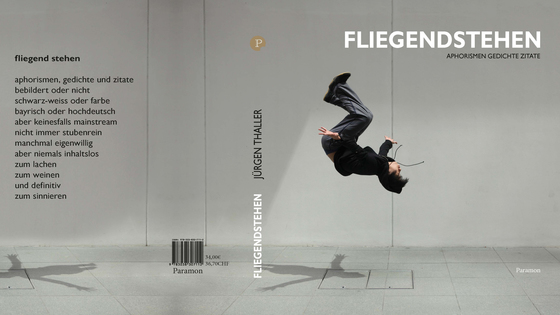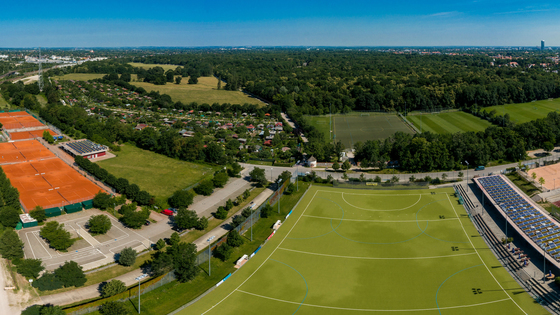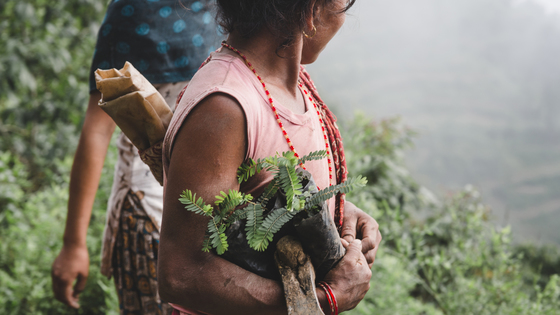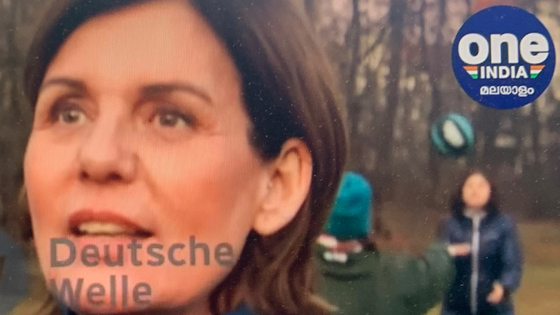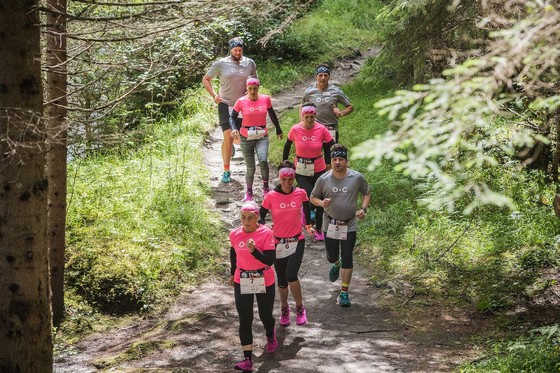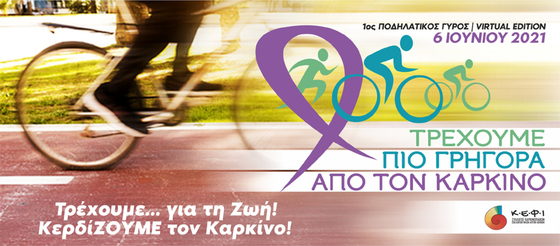Article
Outdoor Sports And Exercising, Personal Responsibility, And Lifestyle Change, An Interview With Petra Thaller
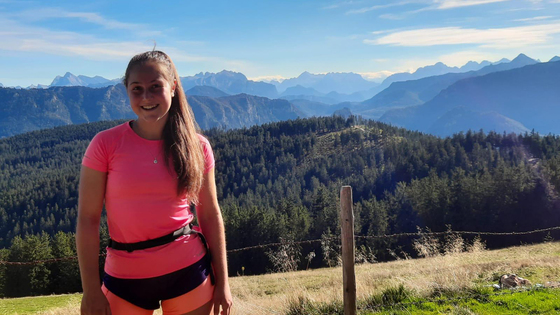
An interview about outdoor sports and exercise, personal responsibility, and lifestyle change.
"I was hoping to do an interview with Petra because I was very excited about OAC when I first came across it while writing my seminar paper on this topic: health promotion through sports using cancer therapy as an example.
It impressed me how much you can achieve through exercise and the mutual motivation in a group. In addition, there is the ambition of Petra herself and the incessantly enthusiastic reviews of the participants. Simply an incredible movement in the right direction, in my opinion, and a very exciting topic where you can learn a lot yourself." Johanna Höglauer
"I was hoping to do an interview with Petra because I was very excited about OAC when I first came across it while writing my seminar paper on this topic: health promotion through sports using cancer therapy as an example.
It impressed me how much you can achieve through exercise and the mutual motivation in a group. In addition, there is the ambition of Petra herself and the incessantly enthusiastic reviews of the participants. Simply an incredible movement in the right direction, in my opinion, and a very exciting topic where you can learn a lot yourself." Johanna Höglauer
Expert interview with Petra Thaller
Interview partner: Petra Thaller PT
Interview conducted by: Johanna Höglauer JH
Interview date: 21.06.2021
JH How do you relate to sports and the disease of cancer?
JH How do you relate to sports and the disease of cancer?
PT That's an easy question to answer, because I myself am a very athletic person and had breast cancer. At that time, I went into cancer therapy very fit because I had just come back from high-altitude mountaineering from New Guinea and I had also been doing sports all my life. So I'm very positive about the aspect of exercise and sports in nature.
JH How did Outdoor against Cancer (OAC) come about and what is it designed to do?
PT The basic idea came about during my chemotherapy, when I went on a ski tour with a friend. At that time, I was in above-average shape during my chemotherapy, and my friend asked me if we wanted to go to the mountains with other cancer patients. This thought did not let me go and three days later I already started to deal with it more closely, I asked friends from the medical branch, looked at studies and little by little my website developed already during my own therapy, I was on an international press conference and much more. And so everything took its course with good nerves and hard work.
JH Why is the additional "outdoor aspect" of sports particularly important in relation to cancer therapy?
PT In cancer patients, the immune system is usually down-regulated due to chemotherapy, radiation therapy, surgery, etc. So going to the gym in this condition would be very disadvantageous, where there are people with colds and coughs and you can easily catch something. The point is, when you're outside, you're already taking a step outside your own front door. You're out in nature with fresh air, you have the opportunity to absorb vitamin D, and you gather different sensations than you would in a clinical setting or enclosed space. These sensory impressions, such as the smell of freshly mown grass or hearing chirping birds, are not only beneficial for the psyche, but being active in nature strengthens the immune system, which in turn guarantees a better course of therapy.
JH What is fatigue syndrome and to what extent does OAC help manage it?
PT [...] The fatigue is not completely eradicated by physical activity in many cases, but it gets significantly better. Now, if you imagine that you're doing it in a gym where everyone is fit, styled and everything else, but you yourself are already totally beat up, it's not very motivating. So it's important for cancer patients to be in a setting where people are in a good mood and motivate each other. Also, we are also the only ones in the world where it is possible to bring everybody to our open courses, so that they also lose the fear of cancer. So friends as well as family and pets (laughs).
JH Why is the sport so important to you as a group?
PT Because we are not a self-help group, so in the group we don't really talk about the cancer, that happens more beforehand with me or other trainers during anamnesis. So the patients don't come to the training to throw up on the others, but to motivate each other and learn from each other. In addition, the groups are very mixed, with healthy people participating for prevention and convalescents for rehabilitation, as well as sick people during therapy and newly ill people. An optimal mixture that motivates [...].
JH What developments and experiences can you perceive in participants?
PT So for one thing, they're all changing their lifestyle, which they should. They're doing a lot more things in their everyday life by bike and on foot, and then some of them even come to workout by bike. So they're becoming more physically active by changing their mindset from 'I need to exercise now because it's actually good for me,' to 'Every time I do an athletic activity like biking, jogging, etc., I feel a lot better.' And on the other hand, they also eat healthier, meaning less junk food, etc., because it means they have a lower risk of disease and relapse. [...] so in general, the behaviors change completely.
JH From your perspective, are the psychological or physical impairments from cancer worse?
PT Well, to be honest, it's pretty much a balance. Of course, it also depends on the tumor and the course of the disease, and it's difficult to generalize. For example, I had five tumors in my right breast and it was back and forth surgery on the pectoral muscle. So now I still have problems and don't quite open up the chest and have pain. But I don't care about the pain, I'm going to be 60 now and I don't feel like hanging around like an old horse because of it. I think that's pretty balanced, although in our society people often suffer from the mental load, as you can tell. But that also gets better through exercise. It's just very individual to look at, on the one hand because of the different intensity of the cancer and on the other hand because everyone is different and reacts differently to what's given. It is the same as in the rest of life, a stupid person remains a stupid person and a nice person remains a nice person; in the normal case.
JH What are the main problems of cancer patients?
PT Anxiety. The main problem for patients is fear and uncertainty. That's logical with a disease where you don't know where the journey is going and you often only hear numbers from doctors about survival rate, mortality rate, risk reduction, etc. But at some point, people do understand that they will always live with the disease and it will never be completely gone. But in this, patients are just very naive sometimes. If I know that I can do something about a disease, i.e. exercise, healthy diet, healthy psyche, then I should do that, right? But people often don't do that.
JH What are your plans for OAC in the future?
PT We are in the process of digitalizing OAC more and more through the OAC app and a TV channel in order to reach more and more people, especially internationally and in countries that have little access to such support. Furthermore, of course, we also work sustainably.
JH If you could change one thing in the world, what would it be?
PT I would really like people to finally switch on their brains and live more sustainably; it's quite simple ... That even the old people understand that it's not always just about them, but that we have children and someday grandchildren and great-grandchildren and that we have to become more sustainable for them. I'm also ashamed of some people of my generation, because my generation, next to the very old, is the one that often "doesn't give a shit." I can't understand that! We all need to live more sustainably and treat our planet the way it deserves. After all, we are only guests here!
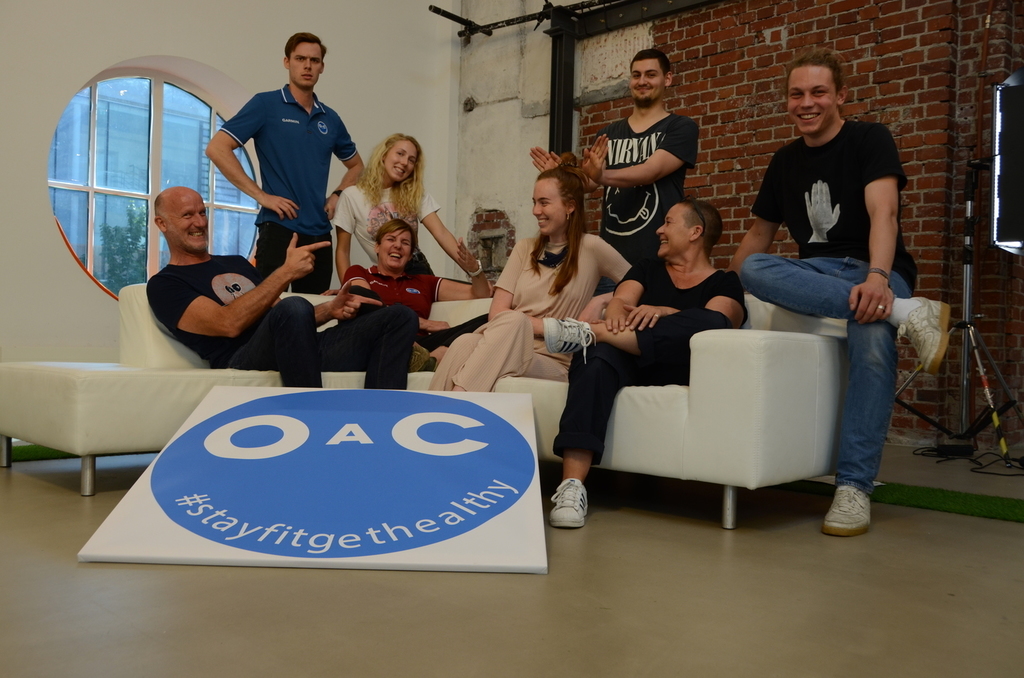
Get involved
Nehme Sie mit uns Kontakt auf
Wir freuen uns auf Ihre Unterstützung und Ihre Fragen und Kommentare.

